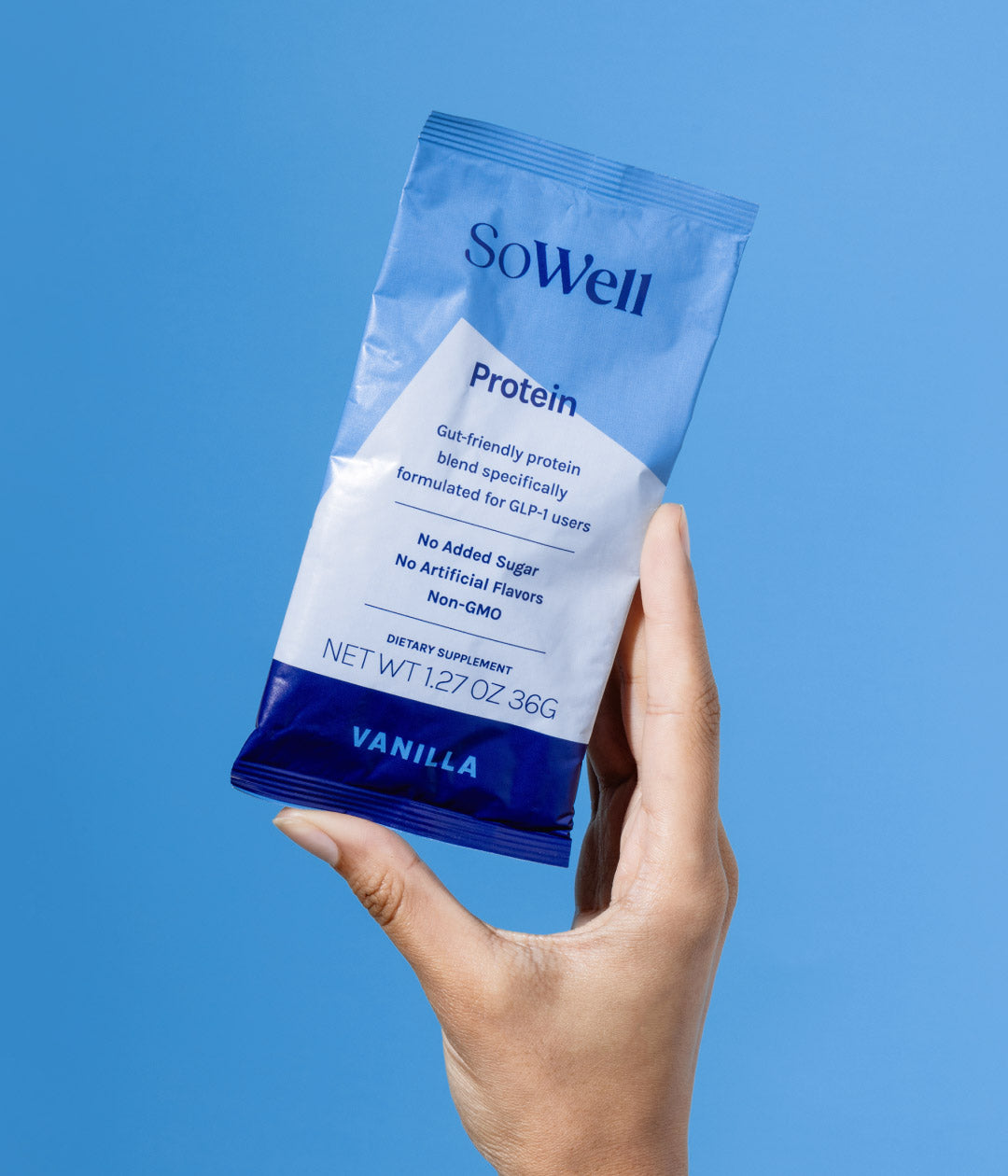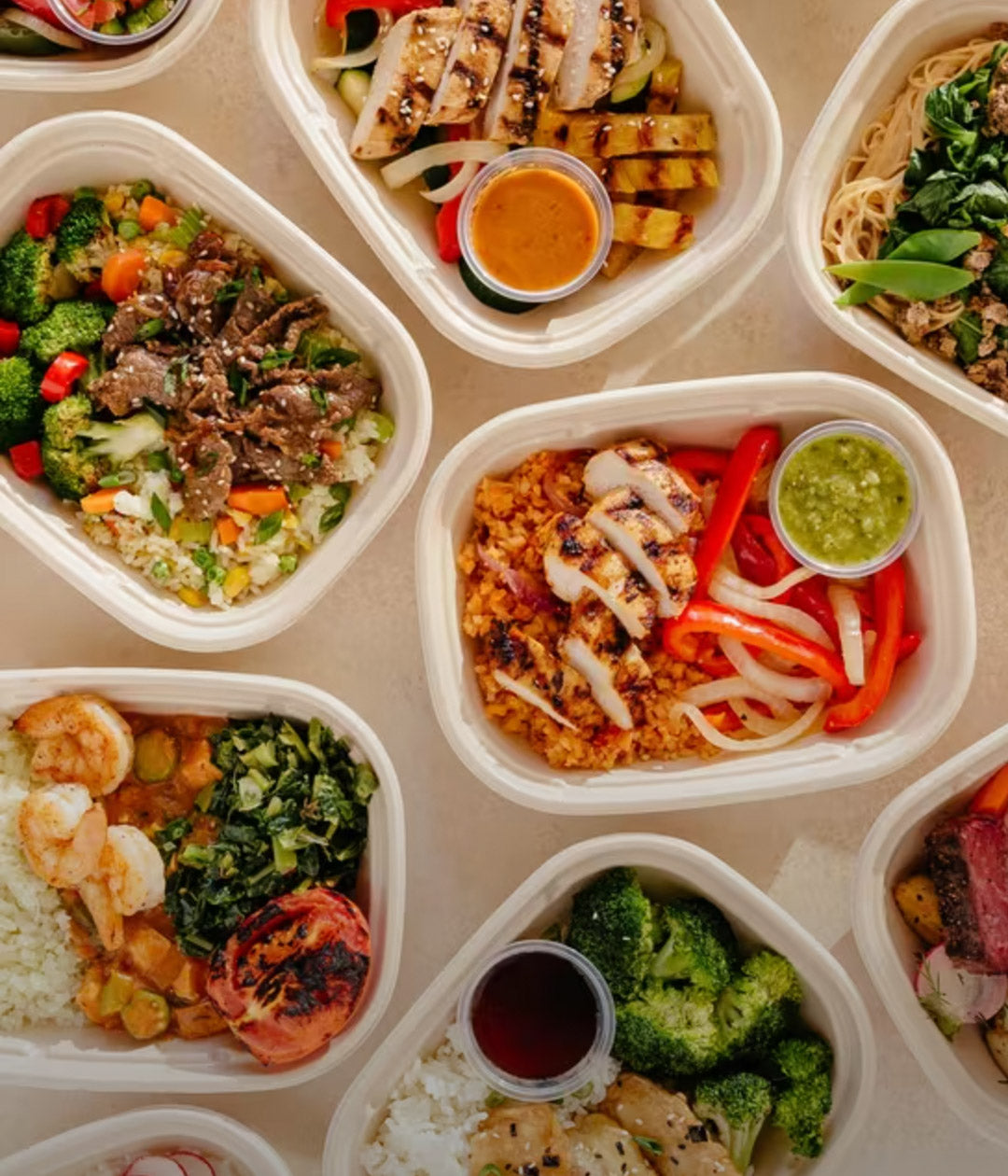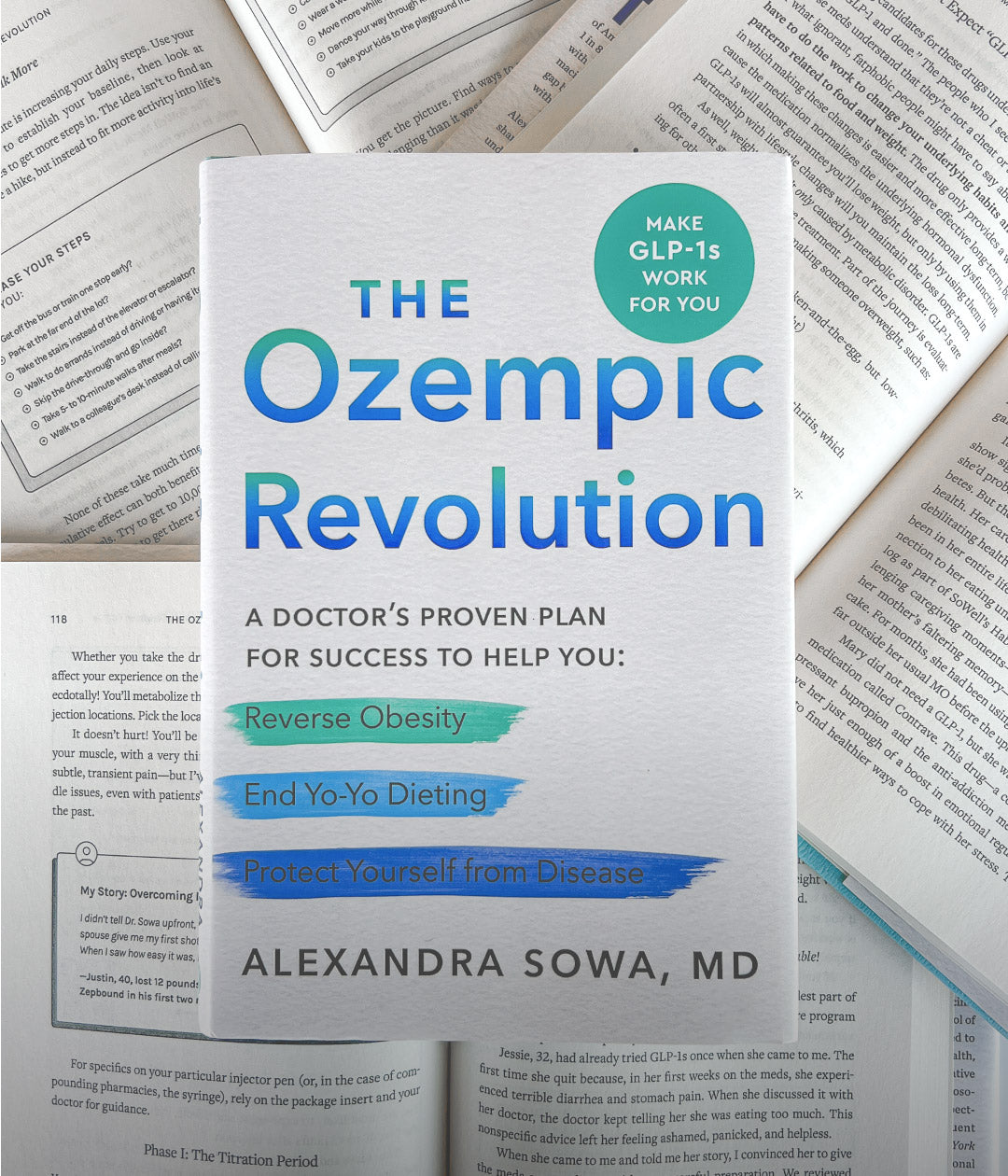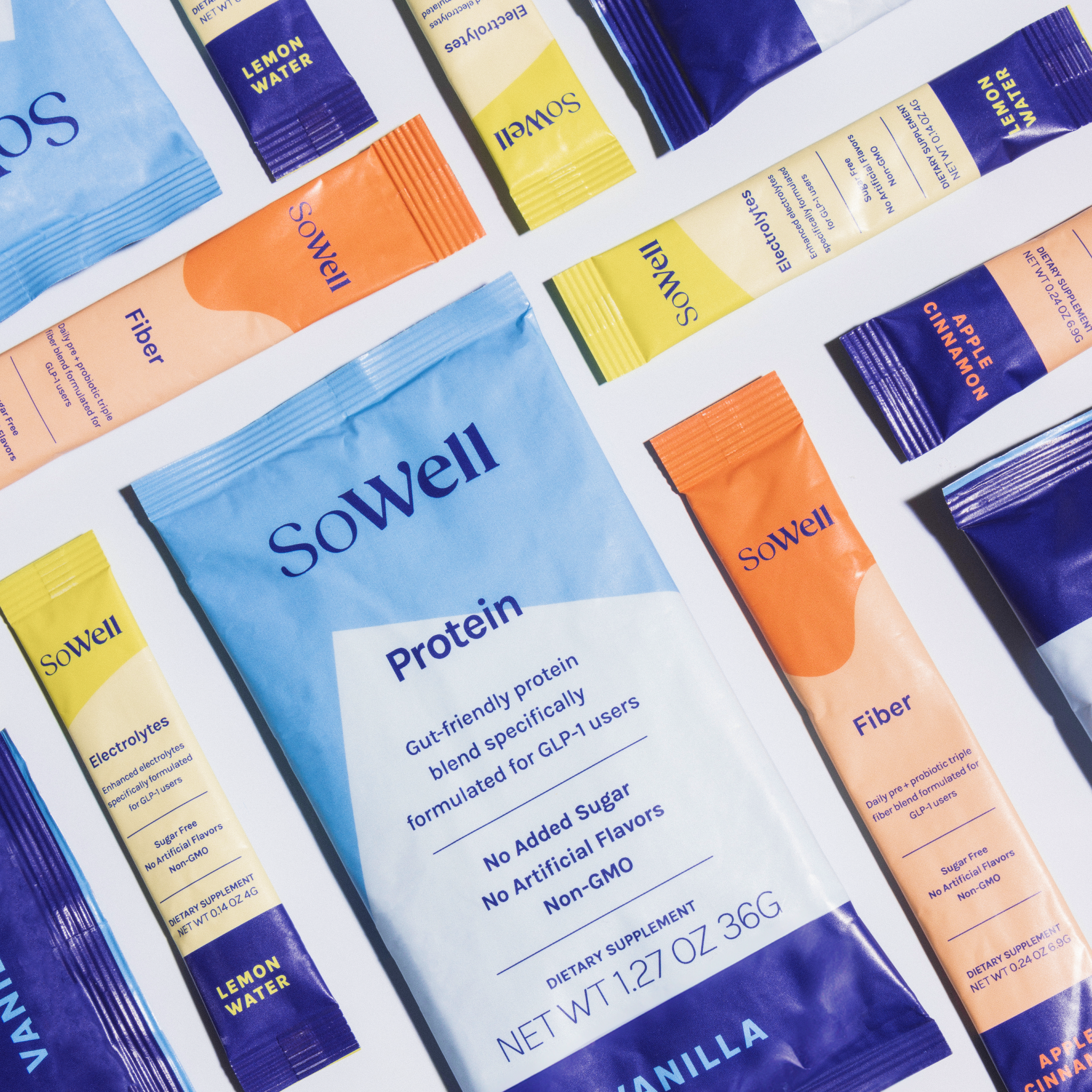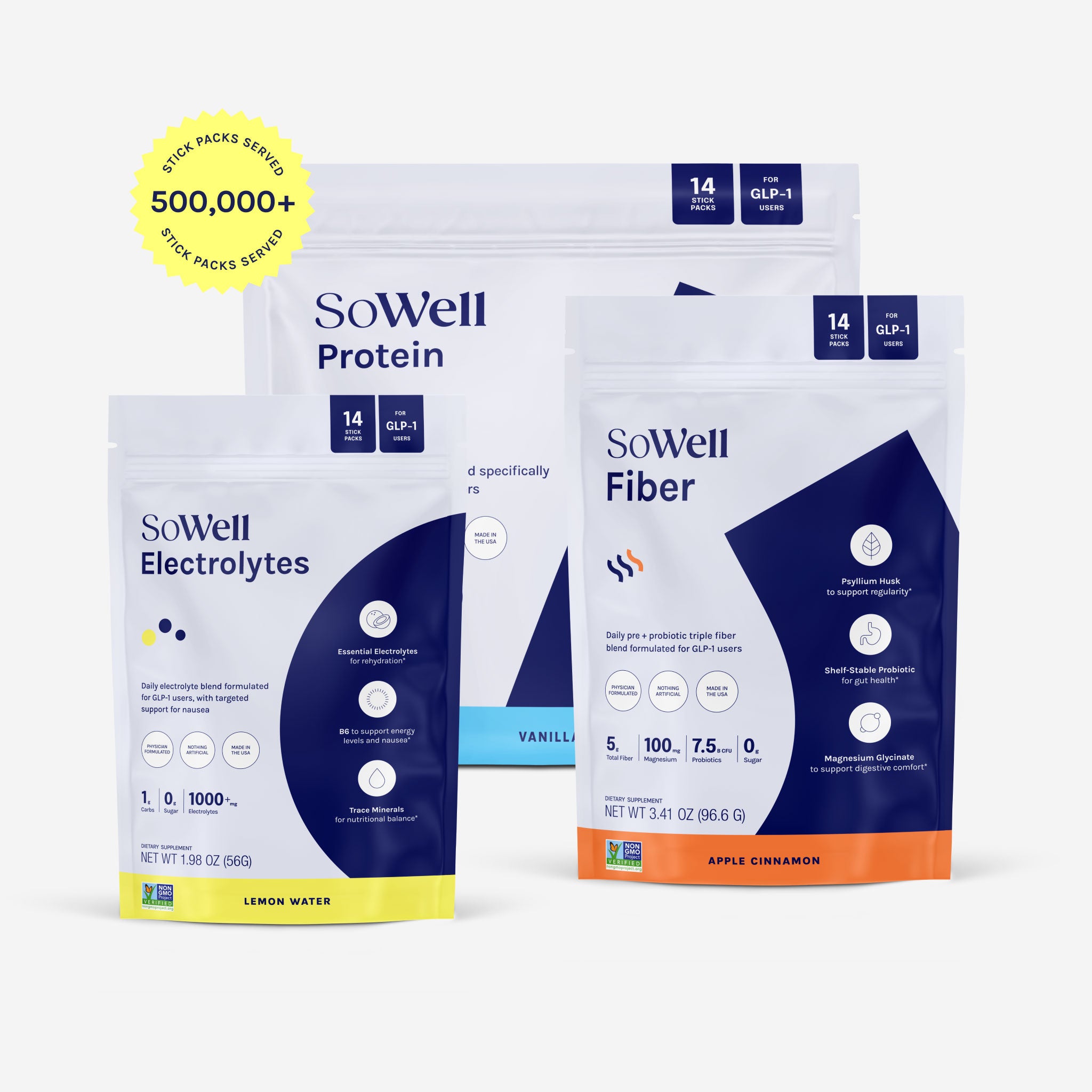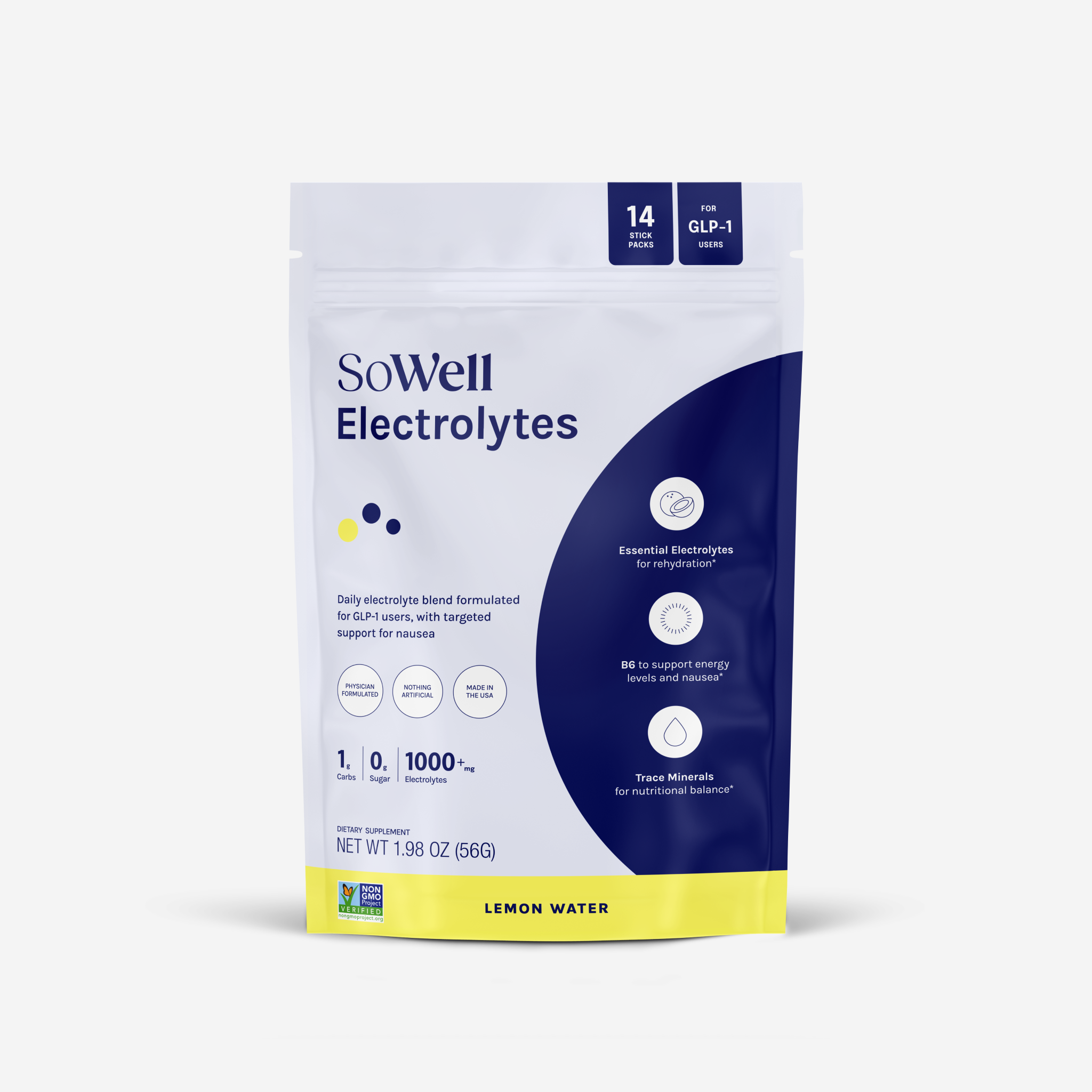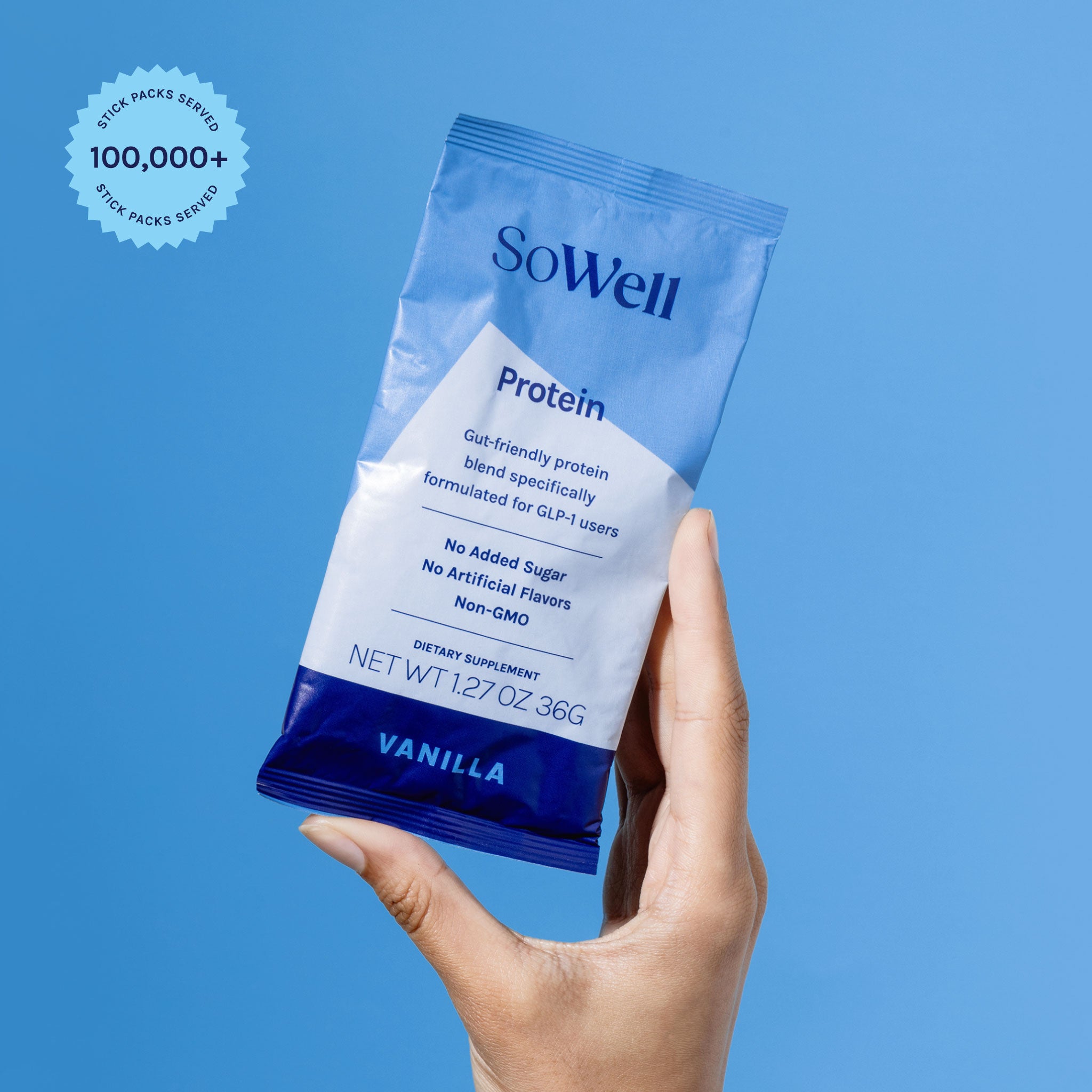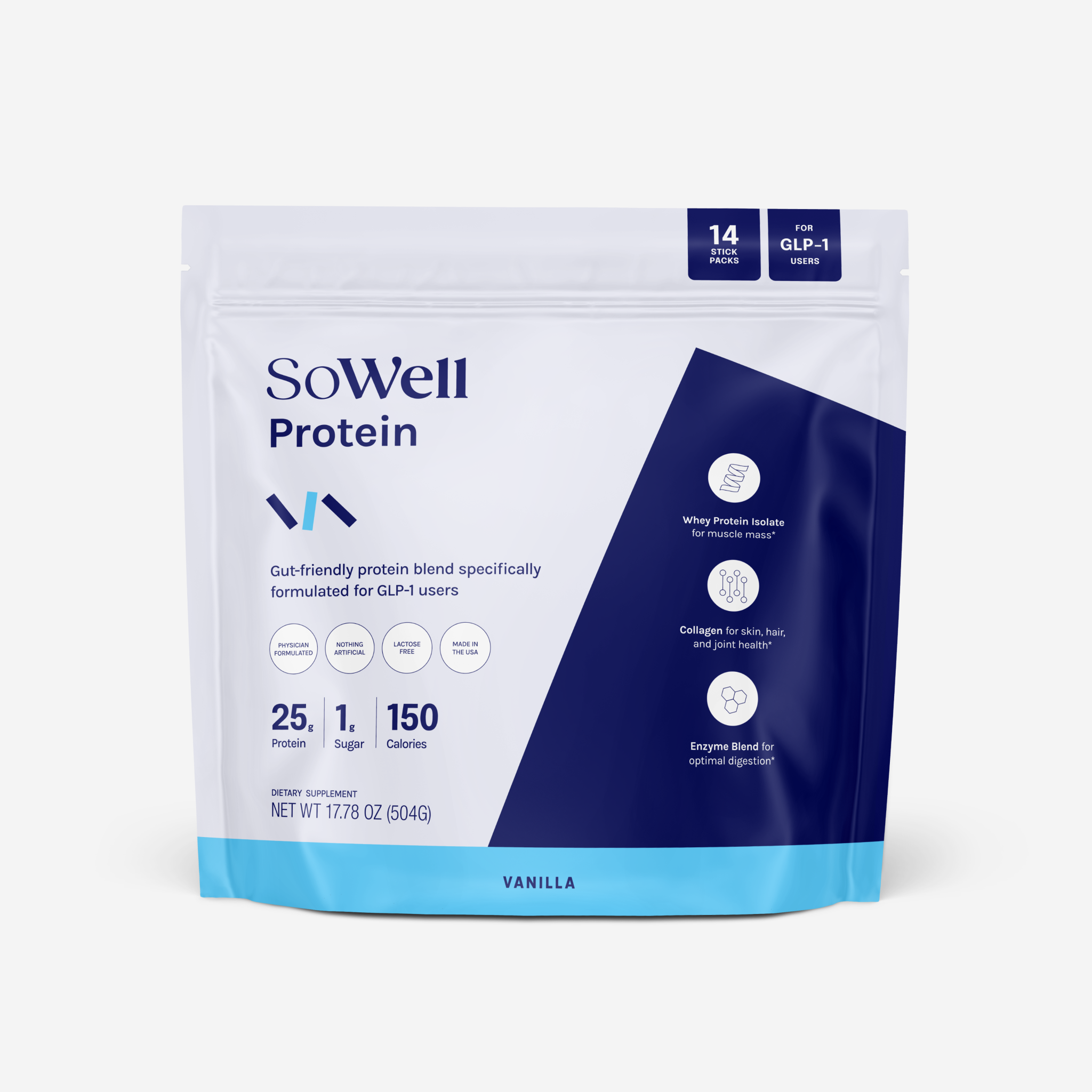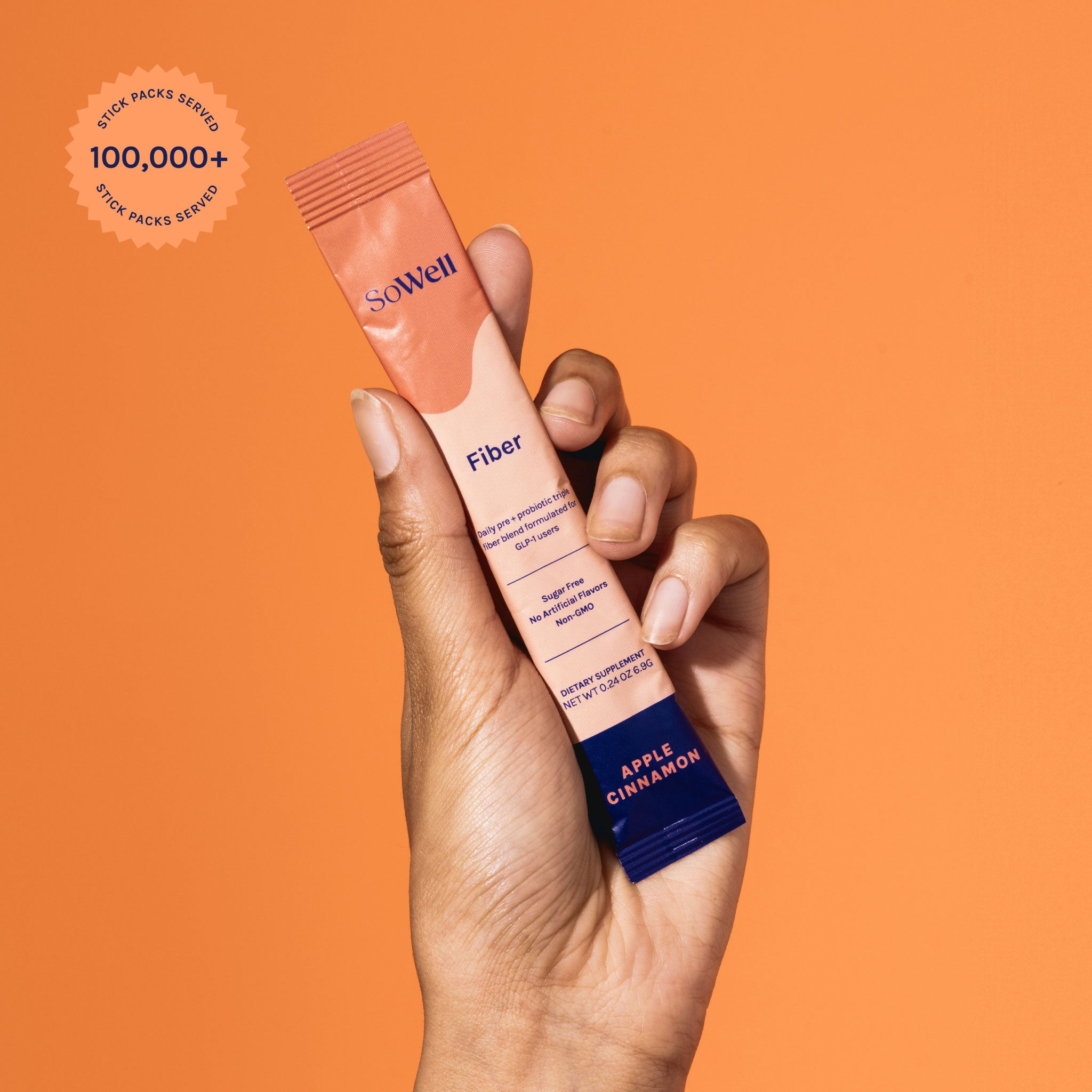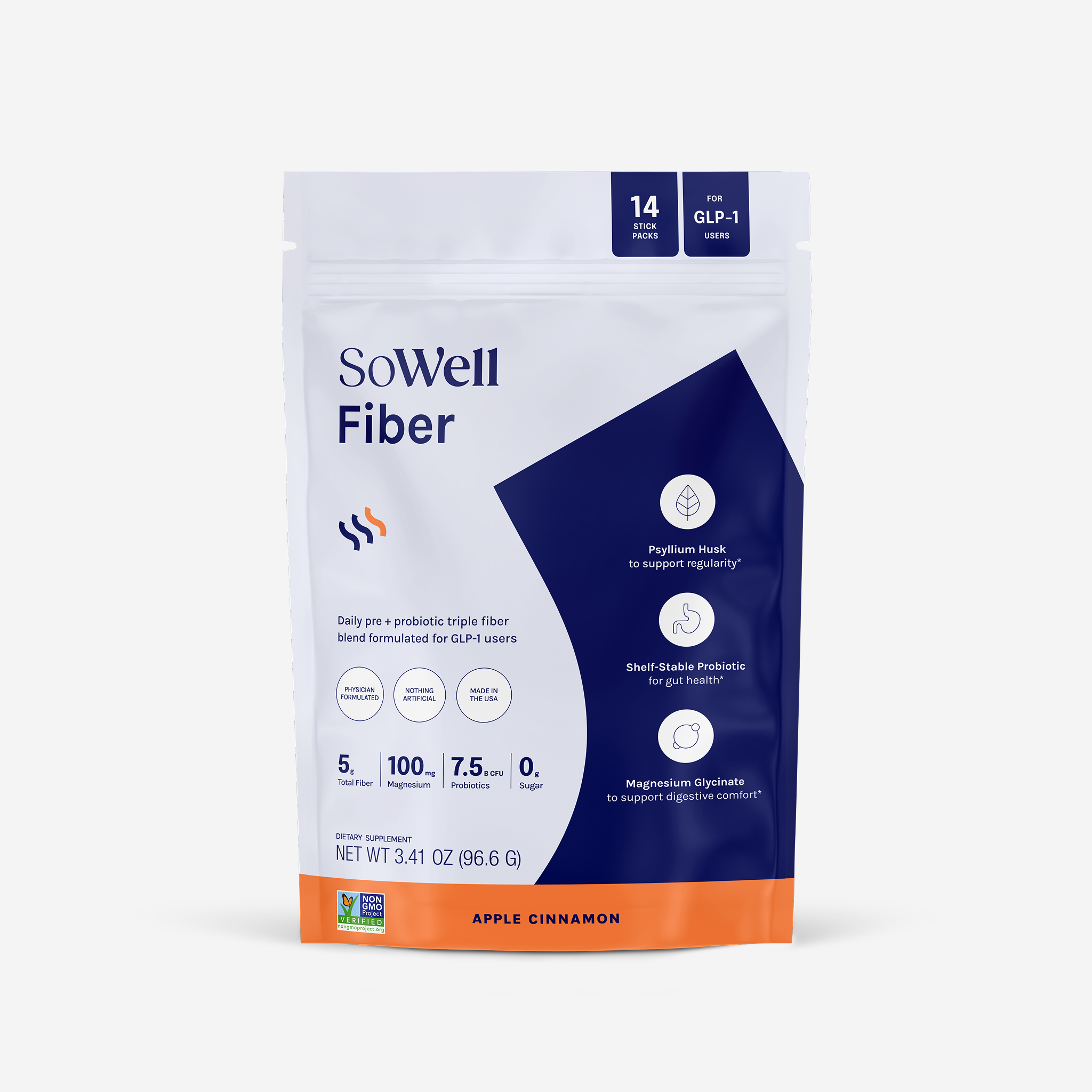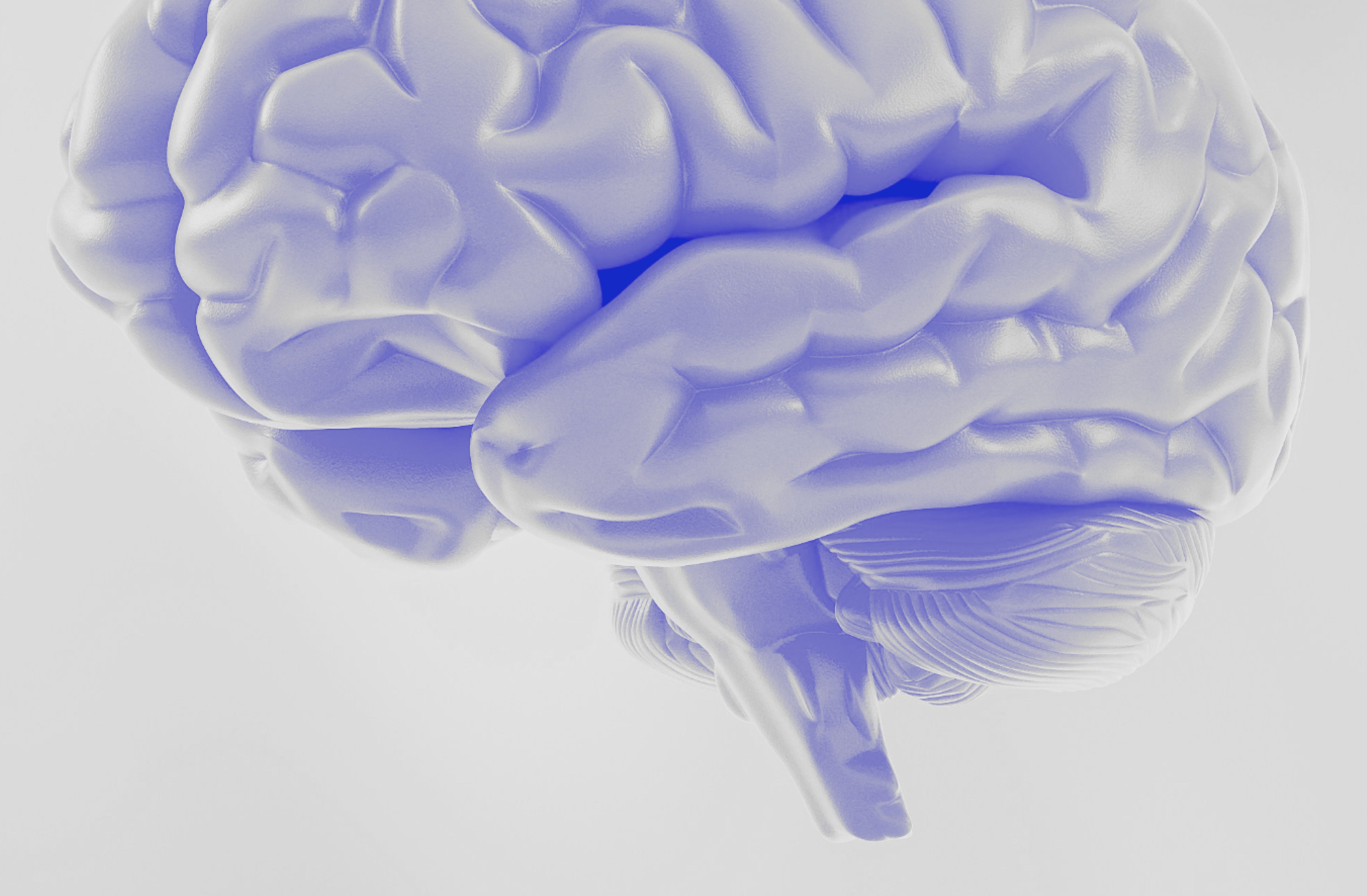
Collagen protein for weight loss: your skin and hair's best friend
Does collagen help you lose weight? Yes, collagen protein can support your weight loss journey in multiple ways—from preserving muscle mass and improving metabolism to preventing loose skin and hair loss. When combined with GLP-1 medications, collagen becomes even more essential for maintaining healthy skin elasticity and hair strength during rapid weight changes.
When you're losing weight with GLP-1 medications or otherwise, the first feeling after shedding stubborn pounds is often a sense of accomplishment and pride. You've worked hard, made sacrifices, and are beginning to see the physical results of your efforts! If you're using a GLP-1 like Ozempic or Wegovy, it might be the first time you feel in control of your weight. There's so much to celebrate!
But with the excitement of new weight loss can come unexpected concerns, especially when it comes to your skin and hair. For many, the joy of reaching weight loss goals is quickly tempered by worries about loose skin and hair loss—two common effects of weight loss.
This is where collagen protein can be a game-changer. By supporting your body from the inside out, collagen helps to firm your skin, promote hair strength, and reduce some of those visible signs of weight loss that can feel discouraging. It’s not just about physical results—it's about boosting your confidence, helping you feel more aligned with the progress you've made, and allowing you to embrace the full transformation you've worked so hard to achieve!
Collagen Health Benefits: Skin, Hair, Nails, Joints, and More
Collagen is the #1 most abundant protein in your body—it literally holds you together! It’s a key structural component of your skin, hair, nails, joints, and even your muscles. Think of it as the "glue" that holds everything together.
Collagen production naturally decreases with age, starting in your mid-20s, but most people aren’t aware that weight loss process can also impact collagen levels, which is why supplementing during weight loss is important. Here are collagen’s biggest benefits:
Skin Elasticity and Hydration
Collagen is a major component of your skin’s structure, contributing to its firmness and elasticity. As you lose weight, you may experience loose or sagging skin, but collagen supplementation can help counteract this by improving skin elasticity and hydration levels. Studies show that collagen supplements help skin retain moisture, making it look smoother and more youthful.
Hair and Nail Strength
If you're noticing hair thinning or brittle nails during weight loss, collagen can provide much-needed support. Collagen contains amino acids like proline and glycine that are essential for maintaining the structure of hair and nails. Regular collagen supplementation has been shown to strengthen hair and nails, reducing breakage and promoting growth.
Joint and Bone Health
Collagen is a key player in joint health, helping to maintain cartilage, the tissue that protects your joints. As we age or lose weight, our joints can become more susceptible to wear and tear, leading to discomfort. Collagen protein helps reduce joint pain and inflammation, making it easier to stay active and protect your joints during exercise. Additionally, collagen supports bone density, reducing the risk of fractures.
Muscle Mass and Recovery
Collagen protein supports muscle mass, which is especially important during weight loss, when the body may lose muscle alongside fat. Collagen helps build and repair muscle tissues, making it beneficial for both maintaining muscle and enhancing recovery after exercise. It can also improve overall body composition by preserving lean muscle mass during weight loss.
Gut Health
Collagen contains amino acids that support gut health by helping to repair the lining of the digestive tract. If you struggle with digestive issues during your weight loss journey, collagen may help by reducing inflammation in the gut and promoting a healthy intestinal lining. A healthier gut can lead to better nutrient absorption, which is key when you’re eating fewer calories or focusing on nutrient-rich foods.
Healthy Aging
As we age, collagen production naturally decreases, leading to visible signs of aging like wrinkles and reduced skin elasticity. Supplementing with collagen helps slow these signs of aging by improving skin structure and hydration. Additionally, collagen supports bone health and helps maintain muscle mass, both of which are critical for healthy aging and staying active over time.
Does Collagen Make You Gain Weight?
No, collagen protein does not cause weight gain. In fact, collagen is a pure protein source with minimal calories and no carbohydrates or fats. Each serving of collagen typically contains 35-40 calories, making it an excellent addition to any weight loss plan. Some people even find that collagen helps control appetite by promoting satiety.
Why Weight Loss Affects Collagen Production
You might be wondering, “why supplement with collagen when my body makes collagen on its own?” Supplementing with collagen can stimulate our body’s own production of collagen—which slows with weight loss due to several factors:
Collagen Production Red Flags
Nutrient Gaps
During weight loss, especially if you're on a calorie-restricted diet, your body might not receive enough nutrients necessary for collagen production. Collagen synthesis requires specific nutrients like vitamin C, zinc, and certain amino acids (proline and glycine). If your diet lacks these nutrients due to restrictive eating or focusing solely on calorie cutting, your body might struggle to produce enough collagen.
Muscle Loss
When losing weight quickly, there’s a risk of losing muscle mass along with fat. This can indirectly affect collagen production because muscle tissue supports skin structure. Less muscle mass means less support for your skin, increasing the chance of sagging or loose skin. Making sure you’re eating enough protein, combined with a slow, steady, sustainable weight loss process is ideal to help preserve muscle mass and maintain the integrity of skin tissue.
Hormonal Changes
Weight loss can sometimes cause shifts in hormone levels, especially if the process is rapid. Hormones like estrogen play a role in collagen production, and a reduction in estrogen levels (common with rapid weight loss or significant fat loss) can reduce collagen synthesis, leading to looser, thinner skin and hair thinning.
Stress
Major weight loss can sometimes place physical stress on the body, especially when it happens quickly. Physical stress increases cortisol levels, and high cortisol levels can interfere with collagen production. Cortisol breaks down collagen fibers and slows down their regeneration, which can leave your skin less firm and your hair more prone to thinning.
If you’re following the SoWell Method, you’re less likely to encounter these issues. However, it’s still very beneficial to supplement with collagen to not only counterbalance these effects, but to prevent them from occurring.
How to Use Collagen for Weight Loss: A Practical Guide
Collagen supplements come in various forms, from powders to capsules, making it easy to add to your daily routine. Here’s what to look for in a supplement:
- Powder form. The most bioavailable form of collagen will come in powder form—which is easiest for your body to absorb and use.
- Hydrolyzed peptides. Hydrolyzed collagen is broken down into smaller peptides, making it easier for your body to absorb.
We include hydrolyzed collagen protein in SoWell Protein to make it easy, convenient, and delicious for you to get the collagen your body needs during weight loss. Add it to your morning coffee, a smoothie, or in milk or water to support your skin and hair and offset some of the undesirable impacts of weight loss.
Best Time to Take Collagen for Weight Loss
For optimal weight loss benefits, take collagen:
- Morning: Mix into coffee or smoothie to support satiety throughout the day
- Pre-Workout: 30 minutes before exercise to support muscle recovery
- Evening: In warm water or tea to support overnight tissue repair
Most research suggests 10-20 grams of collagen daily, though SoWell Protein provides 5 grams of collagen combined with 20 grams of whey protein for comprehensive support.
Frequently Asked Questions About Collagen and Weight Loss
Does collagen help with weight loss?
Yes, collagen supports weight loss by preserving muscle mass, improving skin elasticity during weight changes, and potentially reducing appetite. Combined with a healthy diet and exercise, collagen can be a valuable tool in your weight loss journey.
Can collagen cause bloating?
While rare, some people may experience mild bloating when first starting collagen. This typically resolves within a few days. Start with a smaller dose and gradually increase to minimize any digestive discomfort.
How much collagen should I take for weight loss?
Most studies show benefits with 10-20 grams of collagen daily. SoWell Protein provides 5 grams of collagen plus 20 grams of whey protein, offering comprehensive support for weight loss and muscle preservation.
Is collagen good for loose skin after weight loss?
Yes, collagen is excellent for supporting skin elasticity during and after weight loss. It provides the building blocks your skin needs to maintain firmness and reduce sagging.
Does collagen give you energy?
While collagen doesn't directly provide energy like caffeine, it supports stable energy levels by helping maintain muscle mass and supporting proper protein metabolism.

A Pack a Day Makes Getting Collagen Easy—and Delicious
It can be hard to hit the recommended amount of protein per day, especially if you’re on a GLP-1 medication. At the same time, protein is especially important for GLP-1 users, so sometimes you need to get creative with getting enough into your diet.
SoWell Protein makes it easy. Mixing one stick pack into coffee, smoothies, drinks, yogurt, or baked goods gives you 25 grams of essential whey + collagen protein for healthy muscles, skin, and digestion.
Here’s to glowing, elastic skin and strong hair during weight loss!
